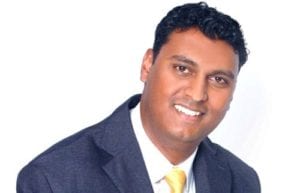The first ever Civilution Congress concluded last night (8 April 2014) in high spirits and with a common verdict: a great success. With opening day speakers such as Public Protector Thuli Madonsela and Minister in the Presidency, National Planning Commission, Trevor Manuel, the atmosphere was charged with expectation.
Despite being the first iteration of the Civilution movement’s congress, the conference and exhibition must have been one of the most anticipated events in the infrastructure community’s calendar. Billed as ‘More than just a conference, it is an engineering revolution’ it is important to justify why one would call it a success. The brainchild of Manglin Pillay, CEO of SAICE, and his team, the congress had to answer these two questions: would the various disciplines within the infrastructure sector be able to find one voice, and would they be able to embrace the idea of doing things differently? Trevor Manuel – A capability upgrade
Trevor Manuel – A capability upgradeTrevor Manuel wants change. Badly. Speaking at the opening plenary he called for a compact between business, engineers and government to commit to rethinking who we are, where we want to be and how we are going to get there. “Engineers need to take the lead – they need to engineer. The time to innovate is now; the time challenge is now”, Manuel speaks with passion, and as an engineer himself, speak from a unique point of view. Speaking on National Development Plan (NDP), Manuel noted that while it looks ahead, we have to aim for change now: “South Africa has access to all the elements to all the elements of decent standard of living for all. Civilution must ask how we can all contribute to achieving this now.” He made an incredibly important point about the value of creative diversity in executing planning and processes: “When developing the NDP, we drew on creative forces beyond engineering, from a broad array of talent in the arts, culture and different business disciplines. I would encourage this approach across the board. It helped me to challenge myself to unlearn my previous roles, just as engineers must do now.” Thuli Madonsela – making it to the promised land
The ubiquitous Public Protector, Thuli Madonsela, delivered insights in her uniquely balanced manner, addressing matters such as corruption, tenderpreneuring and unethical business. However, this was done with a twist: yes, we must address these matters, first and foremost in our own practises, but we must also take a look at how far we let these matters affect our functioning.
“Every organisation needs an engineer,” explained Madonsela, noting that the office of the Public Protector has recently appointed one itself. “Engineers naturally bring a great value to processes and systems, and think pragmatically about outcomes. Engineers also have an interest in fair play, which is why corruption matters so much. The quality of life for South Africans is grounded in infrastructure and it is our duty to ensure that the state delivers to all people, and that is does so honestly.” Madonsela has a very clear relationship with the truth, and although she deliberately avoided the Nkandla report – ‘Secure in comfort’, Madonsela euphemistically referred to South Africa’s journey to the ‘promised land’, and one can only wonder which of several candidates stand out today the King of Egypt. This article will be published in full in the next edition of IMIESA, which will carry insights by PPC CEO Ketso Gordhan, CESA board member Arthur Tatue, CESA President Abe Thela, IMESA President Frank Stevens, and many more of the leading voices in the industry today. Infrastructure News would like to congratulate SAICE and its CEO, Manglin Pillay. Civilution Congress 2014 will be looked at in posterity as the significant step to engineering a better future. Finally, the industry can move towards unity. Nicholas McDiarmid, editor, IMIESA.








